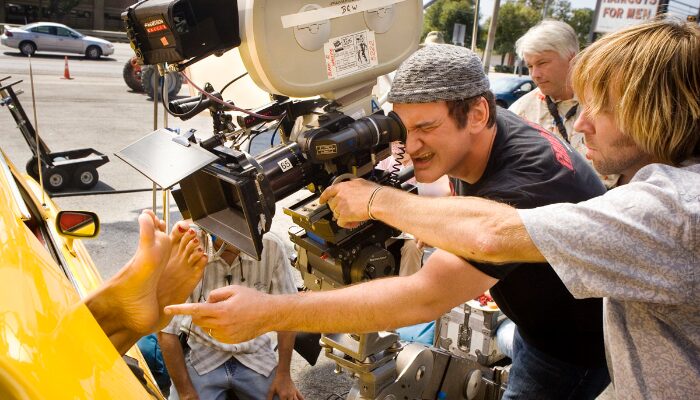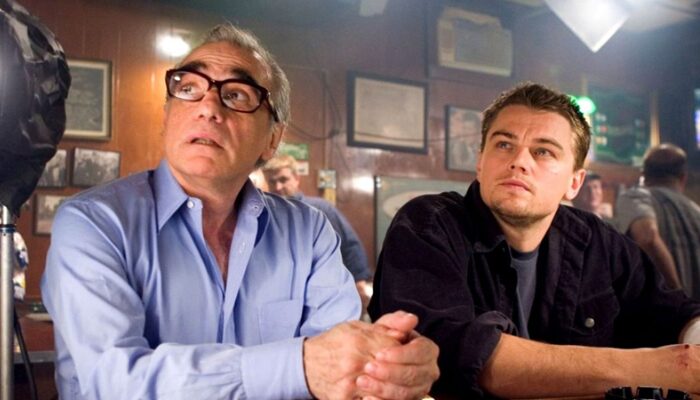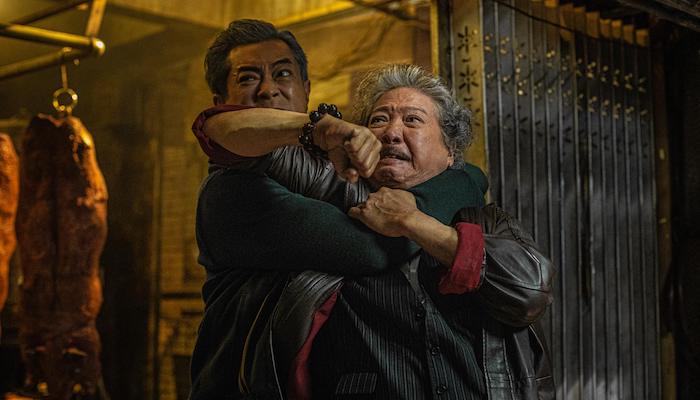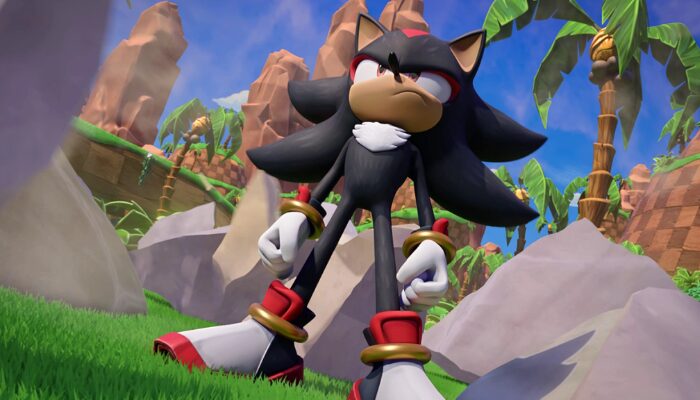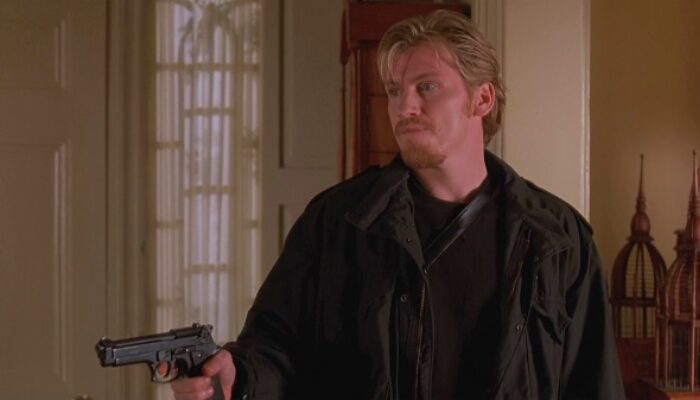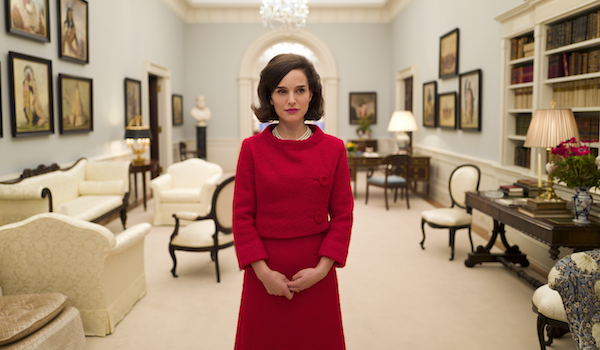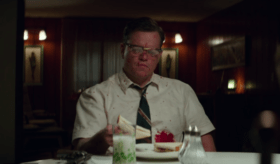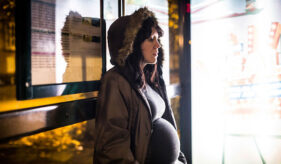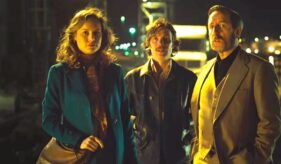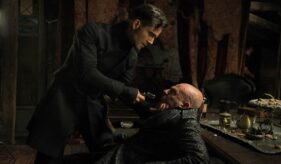Film Review: JACKIE: A Triumph of Storytelling & Captured History [TIFF 2016]
Jackie Review
Jackie (2016) Film Review from the 41st Annual Toronto International Film Festival, a movie directed by Pablo Larraín, and starring Natalie Portman, Peter Sarsgaard, Greta Gerwig, John Hurt, Billy Crudup, Max Casella, Richard E. Grant, Beth Grant, Caspar Phillipson, Sunnie Pelant, Corey Johnson, Marla Aaron Wapner, David Caves, Georgie Glen, and Lindsay Dyan Epp.
Jackie is a historical drama from Chilean director Pablo Larraín, starring Natalie Portman as the titular role of Jackie Kennedy. The film covers the time right before the Kennedy assassination, leading all the way up to the reinterment of the bodies of Kennedy’s two children, who died in infancy, alongside their father in Arlington cemetery. Jackie uses a somewhat nonlinear structure to tell its story.
This film is devastating. Jackie is an incredible triumph of storytelling and captured history, but my god, I never want to have to watch it again. Emotionally, it’s a similar experience to Lars Von Trier’s Dancer in the Dark, or even Hayao Miyazaki’s Grave of the Fireflies, but without any trace of woe-is-me pity, or patriotic sentimentality.
Jackie is one of those movies where you need to be prepared to cry for 90 minutes. If you’re not in a great emotional state where you can handle a film that can be described best as “brutal”, maybe put off your screening until you’re ready for the weight of this film. That’s not to say that Jackie isn’t a masterpiece. There’s nothing I would have changed about the structure, pacing, or delivery of any aspect of this film. It’s just that Jackie will steamroll you with it’s weight and despair.
Jackie‘s score, composed by Under the Skin‘s Mica Levi, is one of the biggest reasons why the film is a success. The dissonant, sliding strings of the orchestra deliver the physical sickness of grief in audio form. Not since Penderecki’s Threnody for the Victims of Hiroshima has an orchestra so perfectly captured an event and all its emotions.
Another fascinating choice is Larraín’s centered framing. He manages to give the film the appearance that it’s been shot for the aspect ratio of television while still being artistically viable as a feature film. Considering that the film also relies heavily on the integration of archive footage and famous photographs from directly before and after President Kennedy’s assassination and his funeral, the artistic choice to do a mock-television style works very well.
One thing that sets Jackie apart from other films that have attempted to cover JFK’s assassination is the decision to keep Kennedy out of the movie as much as possible. Larraín’s story is the grief of Jacqueline Kennedy, not the legacy of JFK. The film jumps into the assassination itself almost straight away. While the handling of the assassination is tasteful, it’s an explicit, but honest, portrayal of true events.
However, even though the assasination is handled in a mature way, don’t think for a minute that you’re going to come away from this film without fully experiencing the shock and horror of JFK’s death. While this film is gut-wrenching and even disturbing at times, it manages to not be exploitative. Jackie isn’t the type of historical drama that spins the truth of the past into a sideshow. This film is not a gore-fest like The Patriot, but it does depict an assassination without any of the cutesy fade-to-black effects used to hide the truth of death.
Natalie Portman’s portrayal of Jacqueline Kennedy shows us both sides of the historical figure. The film features a recreation of 1962’s A Tour of the White House with Mrs. John F. Kennedy, a television broadcast tour of the White House that would eventually win Kennedy an Emmy Award. This recreation uses a combination of archive footage and new footage incorporated seamlessly.
Another great aspect of this film is how John F. Kennedy is depicted and regarded. The film manages to give JFK respect, but also openly acknowledges his flaws and his humanity. Some of the seedier parts of JFK’s past, such as his alleged relationship with Marilyn Monroe, are left unmentioned, but he’s hardly deified in this film. In fact, even though the film takes place before and immediately after his assassination, Kennedy is secondary to Jacqueline in this story. The fact that he’s dead is the main motivation, but Jackie’s experiences of grief and suffering are the real heart of this story.
This movie is suitable for mature audiences who are emotionally ready to take on the heaviest film of 2016. Jackie is a powerful drama that you’re not going to forget any time soon. It might be one of the best films of this year, and it’s certainly the best from TIFF this season.
Rating: 10/10
Leave your thoughts on this Jackie review and this film below in the comments section. Readers seeking more film reviews can visit our Movie Review Page, our Movie Review Facebook Page, and our Movie Review Google+ Page. Want up-to-the-minute notifications? FilmBook staff members publish articles by Email, Twitter, Tumblr, Google+, and Facebook.
Related Articles
FilmBook's Newsletter
Subscribe to FilmBook’s Daily Newsletter for the latest news!


